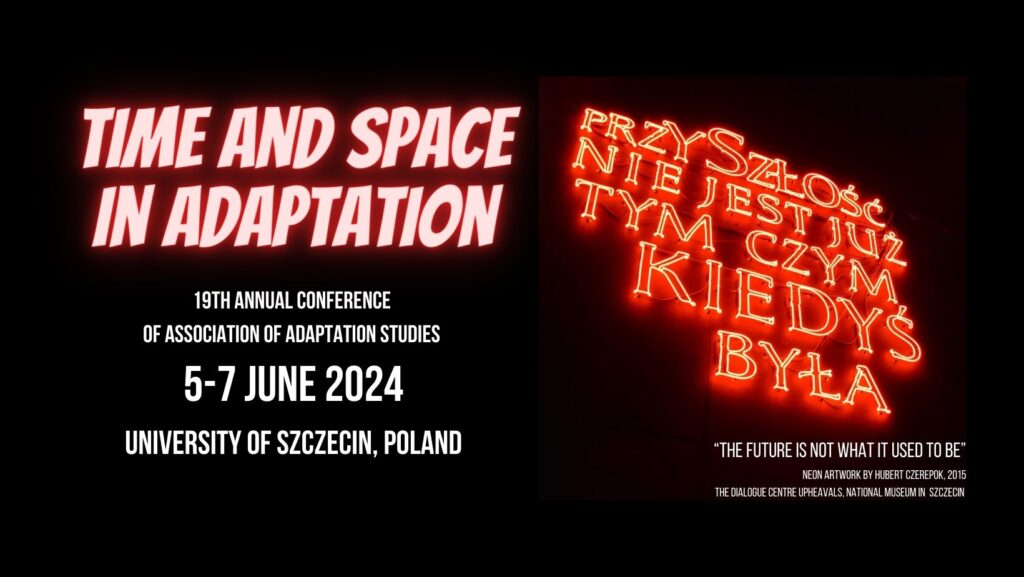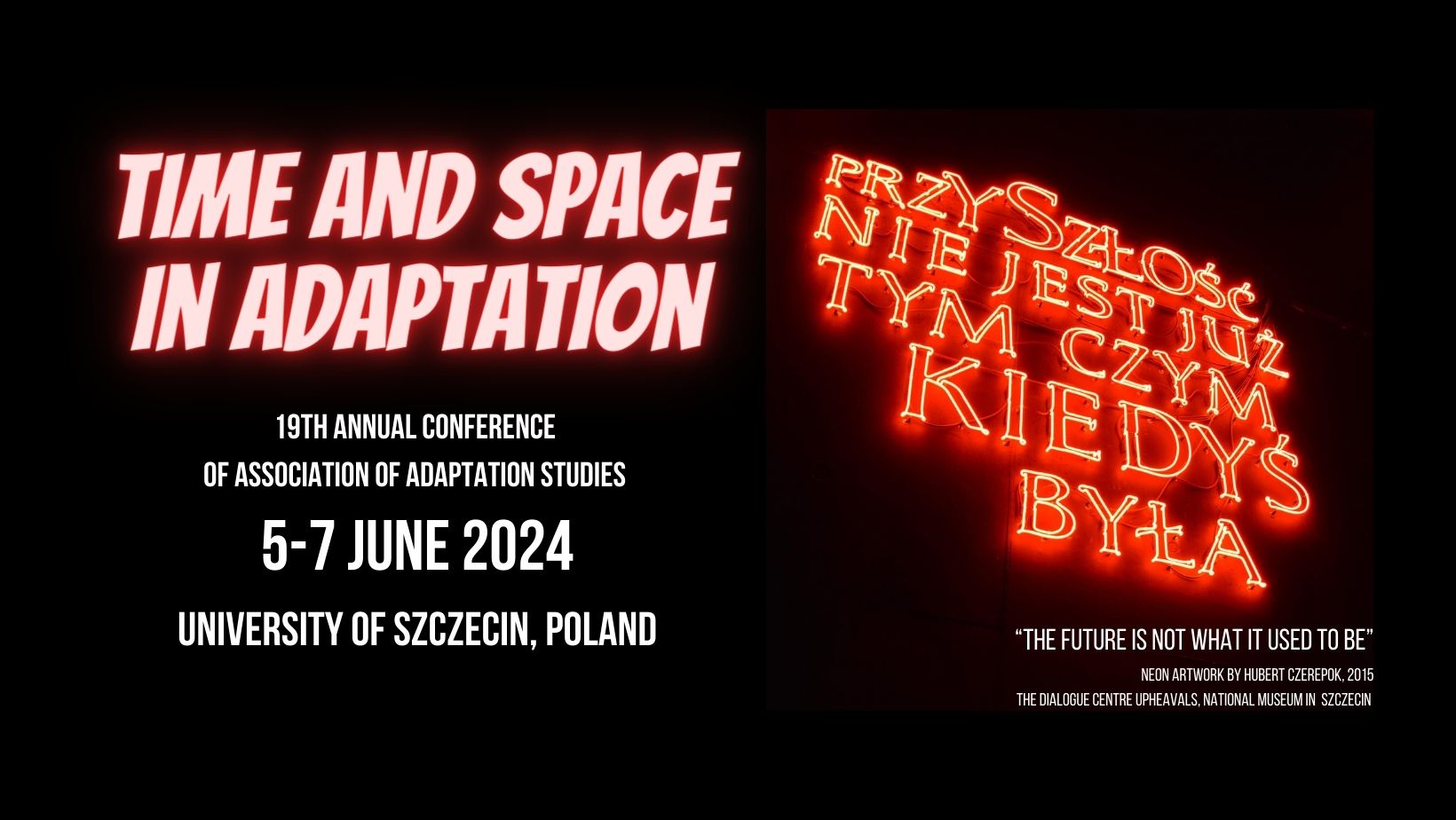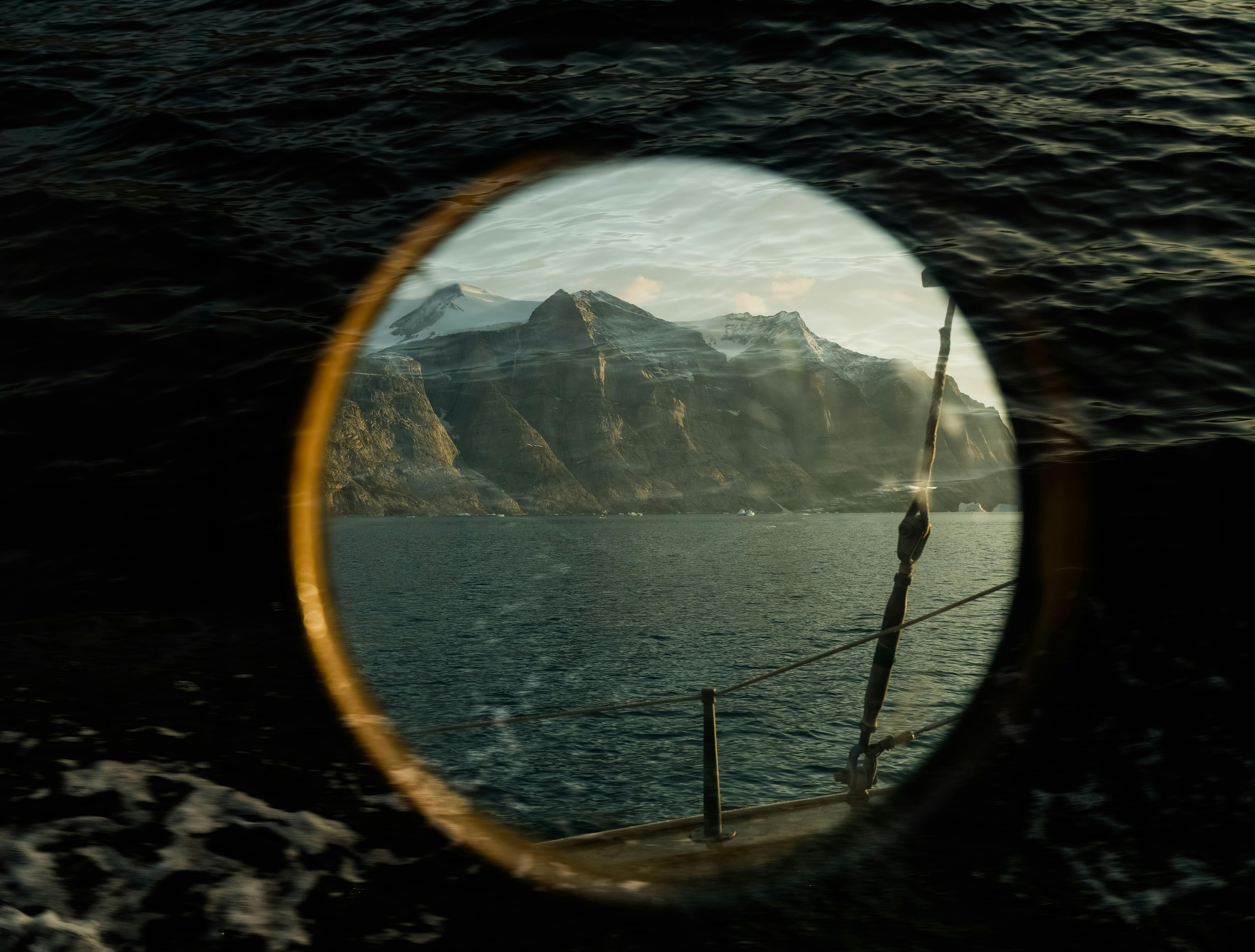CFP: 2024 AAS Annual Conference (5-7 June, 2024: University of Szczecin, Poland)
 Time and Space in Adaptation: 19th Annual Association of Adaptation Studies Conference
Time and Space in Adaptation: 19th Annual Association of Adaptation Studies Conference
5-7 June 2024, Institute of Literature and New Media, University of Szczecin, Poland
APPLICATIONS NOW OPEN: AAS MENTORING WORKSHOP 2024
The conference will address the themes of temporality and spatiality and their relation to adaptation.
Taking as our departure point George Bluestone’s provocative comment: “the novel has three tenses; the film has only one. From this follows almost everything else one can say about time in both media” (1957:48), we would like to explore how different configurations of time and space have a bearing on adaptation, understood both as a product and as a process.
While the discussion of themes of temporality and spatiality has a long tradition within adaptation studies, we would especially like to highlight two classic approaches. In Palimpsests: Literature of the Second Degree (1982), one of the foundational studies of literary adaptation, Gérard Genette uses the term “diegesis” to describe the spatio-temporal framework of literary texts and, talking about adaptation, distinguishes between “diegetic transposition” (an adaptation that changes the setting) and “pragmatic transposition” (an adaptation that modifies events and actions in the plot.) Likewise, Mihail Bakhtin’s concept of the chronotope (literally “time-space”), which is a mainstay in literary studies and film studies, could also usefully be deployed in adaptation studies (cf. Collington 2010).
More recently, inspiring perspectives have been offered by Iain Robert Smith in The Hollywood Meme: Transnational Adaptations in World Cinema (2017) in which he analyses the role of globalisation and the hegemonic position of Hollywood in the cultural transmission, and by Ramon Lobato in Netflix Nations: The Geography of Digital Distribution (2019), which explores how the shift from traditional television to transnational streaming platforms impacts the type of content and the audience potential and expectations.
Below are some suggestions for potential submissions:
- Adaptation as temporal and spatial palimpsest
- Adaptation as revision / presentism in adaptation
- The past of adaptation: history and development of adaptation & adaptation studies
- The future of adaptation: new directions in adaptation studies
- Adapting the past: historical & biographical adaptations
- (Deliberate) anachronism in adaptation and appropriation
- Appropriation into new spatial and temporal contexts
- Futuristic adaptation
- Time travel motif in adaptation
- Settings, stagings, mise-en-scènes, chronotopes in adaptation
- Global and transnational adaptation: beyond Anglo-centric adaptation
- National, ethnic and cultural adaptation and appropriation
We welcome proposals for individual papers, panels and round-table discussions, as well as video essays and practice-oriented submissions.
Abstracts of 250 words and a brief biographical note of 150 words should be sent to Dr Barbara Braid and Dr Anna Gutowska at aas2024@usz.edu.pl by 15 January 2024.
Notifications of acceptance will be sent by 5 February 2024.
You do not need to be a member of AAS to submit a conference proposal, but you must be a paid-up member in order to attend the conference or to be included on the final programme. For information about joining AAS, see http://www.adaptation.uk.com/join-the-association/
Postgraduate students and early career researchers:
The AAS offers a number of bursaries for postgraduate students and early career researchers (up to 3 years post-PhD). If you would like to apply, please fill in the form below and send it with your proposed abstract and biographical note to Barbara Braid and Anna Gutowska at aas2024@usz.edu.pl by 26 January 2024.
AAS 2024 PGR ECR bursary application
We are also planning a pre-conference PGS/ECR workshop on 4 June 2024. Please declare your interest in the workshop in the registration form.
ORGANISERS:
Morphing Culture(s) Research Group, Institute of Literature and New Media, University of Szczecin, Poland in partnership with WFDiF Documentary and Feature Film Studio, Warsaw, Poland



